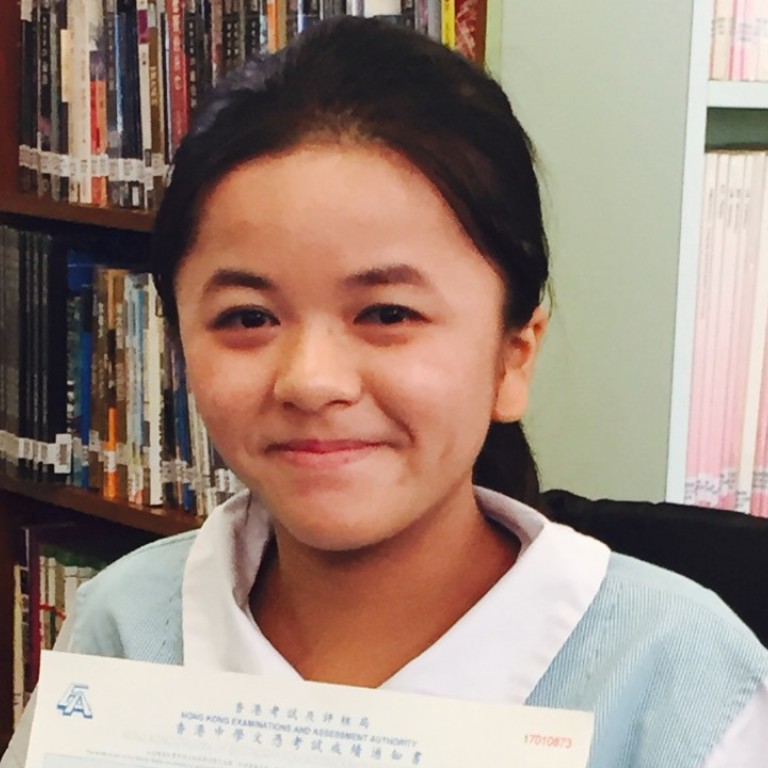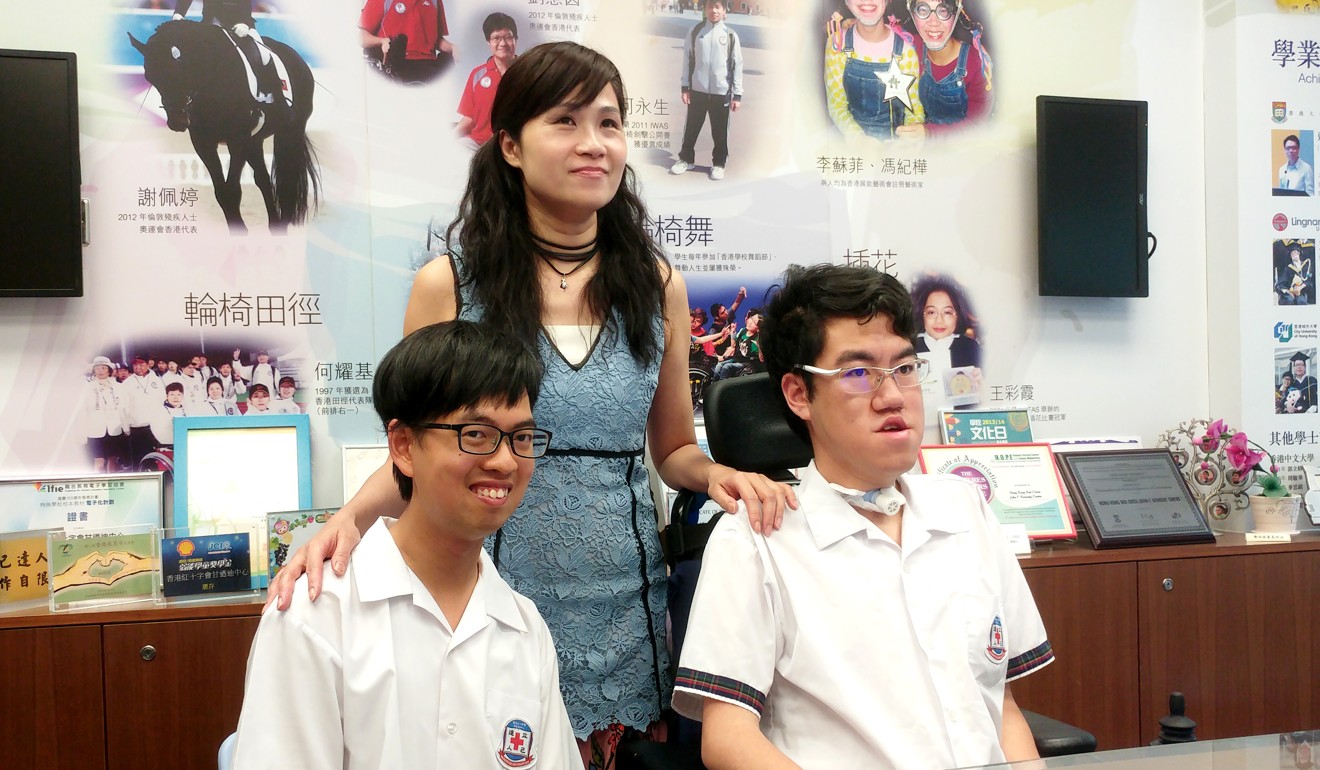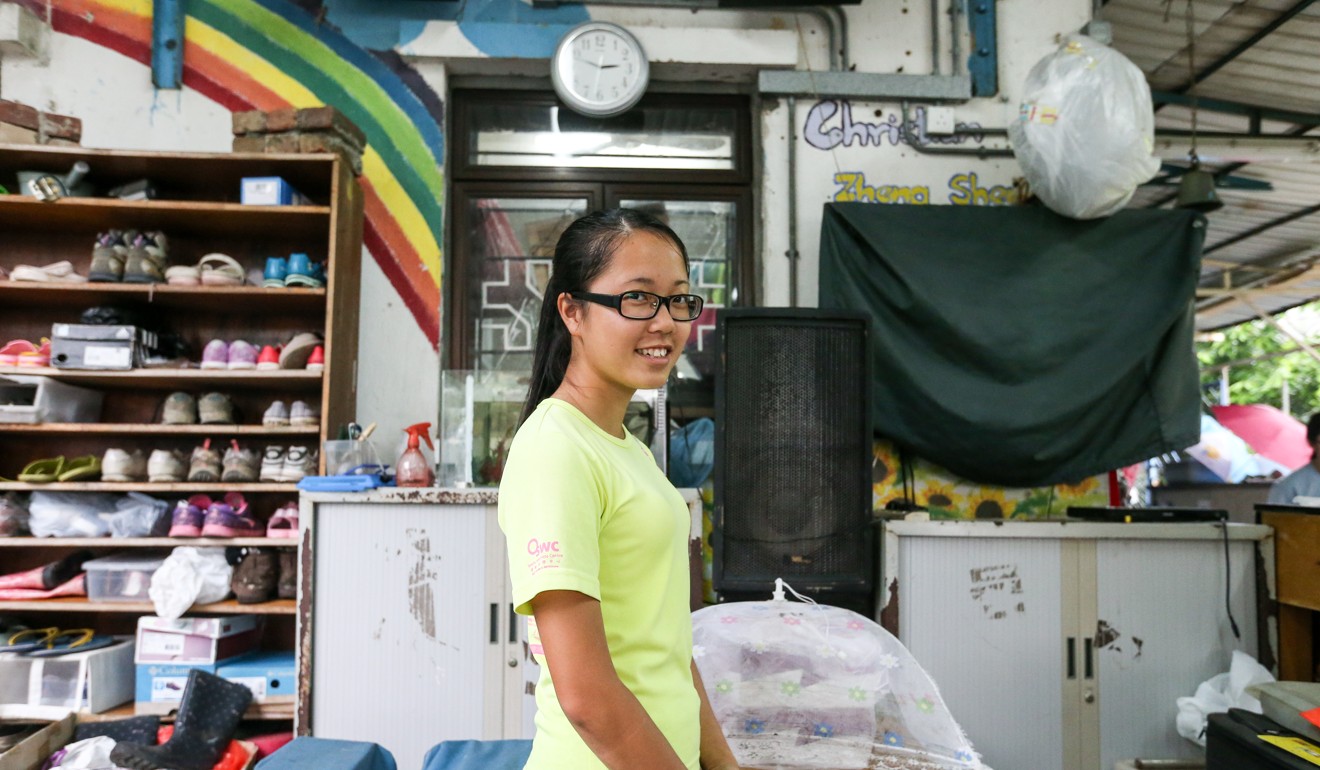
Hong Kong pupils defy physical challenges and troubled histories to pass DSE and qualify for university
They include a girl afflicted with brittle bone disease and another who was involved in theft
As Hong Kong’s public exam candidates achieved results qualifying them for university, some students battling lifelong illnesses or other difficulties were simply proud to have completed the challenging feat.
Cherry Ho Cheuk-wing, afflicted with brittle bone disease, was one of the few to beat the odds by achieving results that earned her admission to university.
The disease, a genetic disorder that results in bones being so fragile that a light bump could yield a fracture, means that Ho must rely on using a wheelchair daily.
The Hong Kong DSE exam is a subject-based qualification test for secondary pupils seeking admission to university in the city.
“This disability has limitations, that’s for sure, but if I can give advice it would be this: never give up and don’t stop striving for excellence and achieving what you want for the future,” Ho said.
The Christian and Missionary Alliance Sun Kei Secondary School pupil said she hoped to study law in the future.
Never give up and don’t stop striving for excellence and achieving what you want
“I want to use my professional knowledge to help the disadvantaged in the future, especially minorities and the disabled,” she added.
Two pupils from another special needs school, Hong Kong Red Cross John F Kennedy Centre, did not achieve the scores they hoped for, but remained optimistic.
Choi Yu-hong, 24, who suffers from spinal muscular atrophy – a degenerative disease that has left most of his body paralysed – failed in the three subjects he sat for.
“I just wanted to test my ability, and I believe I have accomplished this challenge I set for myself,” he said.
While most candidates take three years to prepare for the exam, Choi spent a total of five years studying for it.
People living with spinal muscular atrophy require constant and intensive care. Choi, who also has breathing difficulties, requires the help of a ventilation device and needs round-the-clock care.

“I’ve lived in my hospital for my entire life,” he said. “Right now my next challenge is to hopefully explore a new environment outside the hospital when I can get into public housing.”
Another pupil at the school, Choi Wai-ting, is a brain cancer survivor. He took the exam for the second time to pass the mathematics section.
After Choi’s surgery and repeated chemotherapy, doctors told him that his memory and mathematics would not be as sharp as before.
“For things that normal pupils can do, it is 100 times more difficult for him,” his mother said.
Choi has accepted an offer to study a social sciences associate degree programme at the HKU School of Professional and Continuing Education.
Meanwhile, a pupil at Christian Zheng Sheng College – a juvenile delinquency rehabilitation school – has achieved the highest DSE score in the school’s history.

Jasmine Chin Pui-yu was involved in theft as a teenager. But on the DSE, she scored 21 points.
Unlike other schools, Christian Zheng Sheng College requires its pupils to juggle a fair share of housework and chores at the boarding school.
“We do not have a fixed timetable for study as we usually encounter many unexpected problems, such as meetings, sharing sessions, housework, and the absence of teachers,” Chin explained.
“This very often deprives us of study time. But these challenges trained my time management skills.”
Separately, 19 teenagers in custody were enrolled to take the DSE through the Correctional Services Department. Three of the 19 satisfied the basic requirements to enter university.
At Pik Uk Correctional Institution for young male prisoners, one inmate, only known as Ah Wai, scored the highest among test-takers there, with a total of 20 points for six subjects.
He was convicted for drug trafficking and has six more years to serve in jail.
“A teacher once told me: ‘An omelette cannot be made without breaking the egg’,” he recalled. “In other words, if you don’t try, you won’t know if you could have succeeded. My teachers never gave up [on me].”
“I learned to not give up on what I want in moments of despair,” he added. “I think this will help me in the future when I go back outside.”
Isabella Lo, Lam Ka-sing, Heidi Ng, Bong Xinying and Naomi Ng

